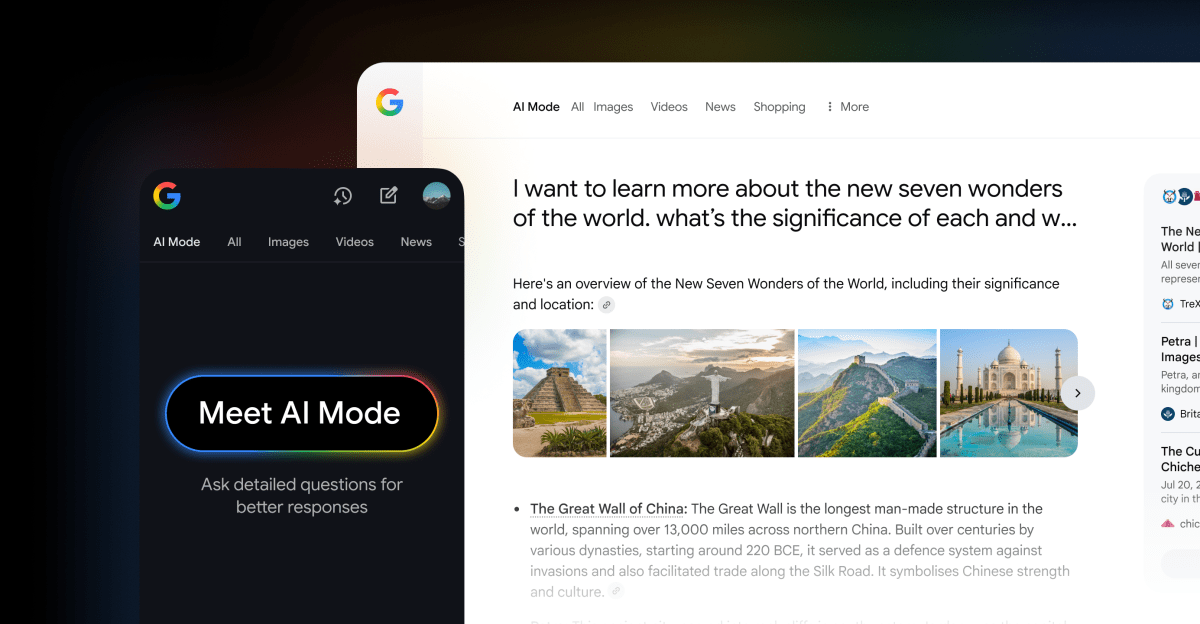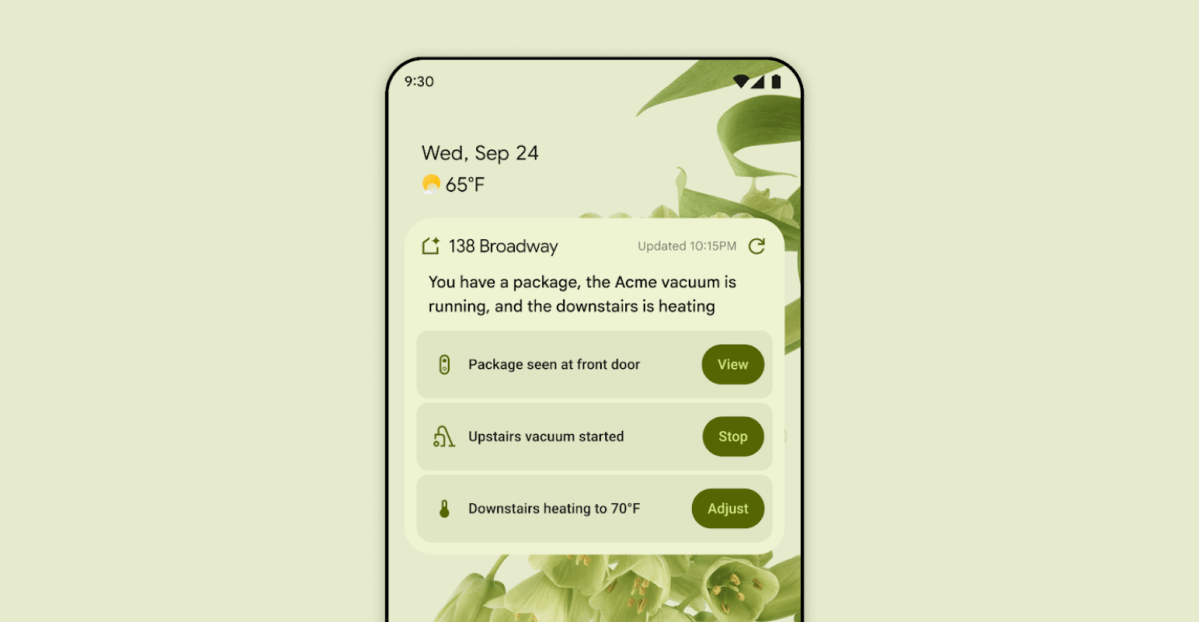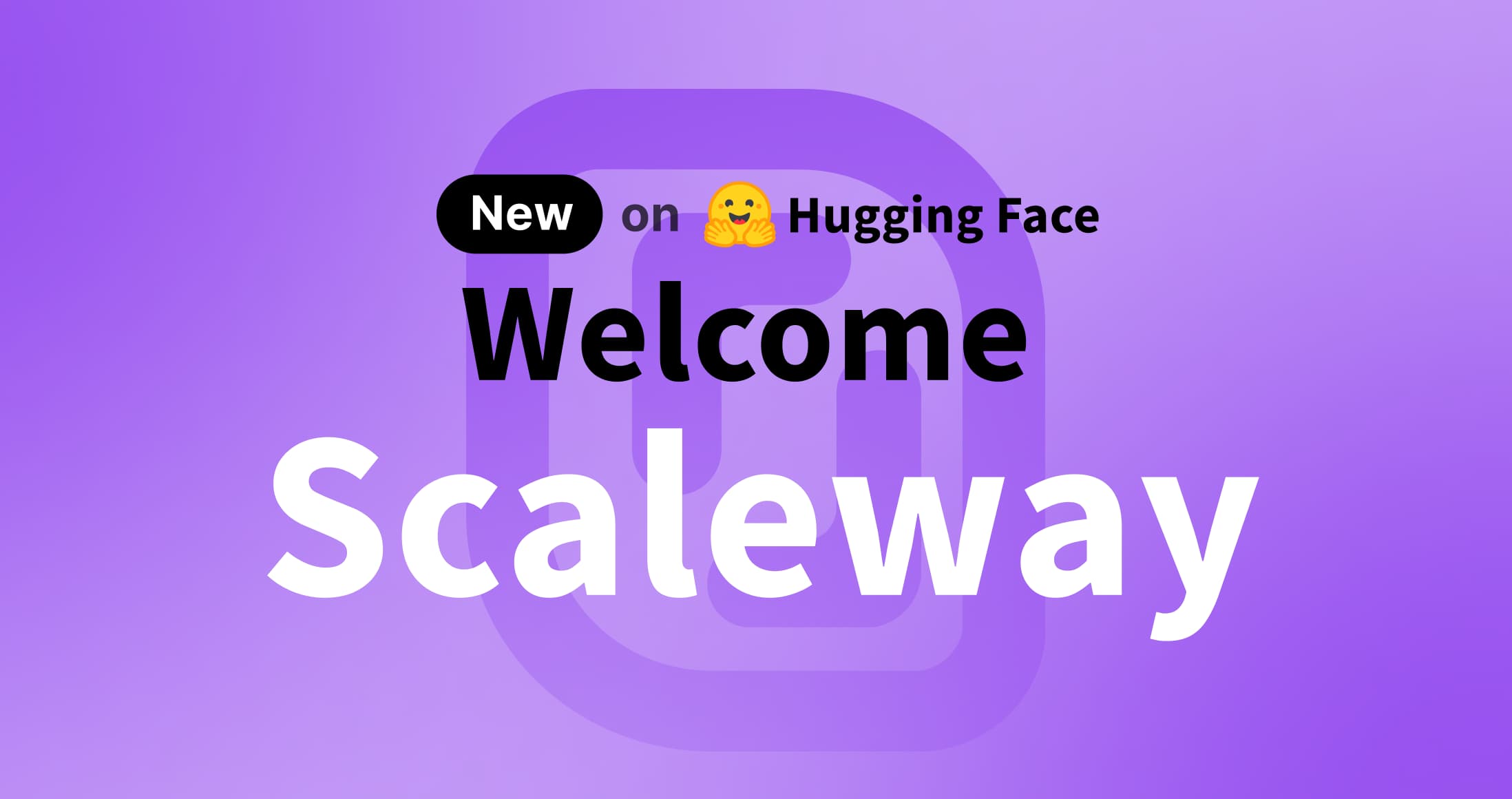
Google Search’s AI Mode goes global with smarter restaurant bookings
Sources: https://www.theverge.com/news/763367/google-search-ai-mode-agentic-restaurant-bookings, The Verge AI
TL;DR
- Google expands AI Mode in Search to 180 countries and territories, broadening access beyond the US, UK, and India. The feature remains English-only worldwide.
- The rollout introduces agentic capabilities focused on restaurant bookings, available to Google AI Ultra subscribers via the AI Mode Labs experiment.
- AI Mode can search across reservation platforms such as OpenTable, Resy, Tock, Ticketmaster, StubHub, SeatGeek, and Booksy, returning options and linking directly to booking pages.
- A new sharing feature lets users copy a chat link to share AI Mode results with others, with the ability to view or delete shared links. Personalization is expanding for US users who opt into Labs.
- For now, the dining‑oriented capabilities will reference past conversations and previous searches to tailor recommendations in the US, while the global expansion covers broader topics in English.
Context and background
Google has been testing AI Mode as a chatbot-like layer within Search, designed to provide more conversational and proactive results. The latest update expands this capability to 180 countries and territories, moving beyond the previously announced availability in the US, UK, and India. While this global rollout broadens access, Google notes that AI Mode remains available in English only across these regions. The move aligns with Google’s broader push to embed agentic capabilities into Search, enabling actions that go beyond returning links to performing tasks directly through integrated services. The expansion and new features were shared as part of Google’s ongoing experimentation with AI‑driven experiences in Search. The Verge reports on these developments. In parallel with the geographic expansion, Google is introducing what it calls agentic capabilities in AI Mode, starting with restaurant bookings. This marks a shift from purely informational results toward performing tasks on behalf of users. Access to these capabilities is currently gated behind an opt‑in Labs experiment for users enrolled in Google AI Ultra’s AI Mode features. The goal is to let AI Mode sift through multiple reservation channels and present a curated set of options you can act on, such as booking a table for a specified date and party size. The Verge provides details on how this is being rolled out and how users can participate. Google also highlighted that the new dining‑oriented interactions can reference past conversations and places you’ve previously searched for or clicked on. This personalization is described as US‑only and limited to users who opt into the AI Mode experiment in Labs for now. The company is also introducing a “Share” feature that lets you copy a link to a chat so others can pick up where you left off. Shared links can be viewed and deleted by the user who created them. The Verge notes these capabilities as part of the ongoing Labs experimentation.
What’s new
The core update centers on agentic restaurant bookings within AI Mode. When you enable the Agentic capabilities in AI Mode (via the Labs experiment), you can ask for restaurant reservations with structured specifics: date, time, location, party size, and preferred cuisine or type of food. AI Mode will then scan multiple reservation platforms and present a list of restaurant options and available time slots. Once you pick a option, AI Mode provides a direct link to the booking page so you can complete the reservation without leaving the interface. Google states it is partnering with a set of reservation and ticketing platforms to power this feature. The platforms explicitly named include OpenTable, Resy, Tock, Ticketmaster, StubHub, SeatGeek, and Booksy, among others. This cross‑platform integration is designed to streamline the process of finding availability and moving seamlessly to the final booking step. Users can try this feature by enabling the “Agentic capabilities in AI Mode” experiment in Labs if they have access to Google AI Ultra. Another notable update is the user‑facing sharing capability. A newly added Share button lets you copy a link to the AI Mode chat so friends or family can continue the search from where you left off. Google also emphasizes user control, noting that you can view and delete shared links at any time. This sharing mechanism complements the primary booking workflow by enabling collaborative planning among diners. The Verge covers the sharing and experiment aspects of the rollout. In addition to the global expansion and booking features, Google underscored a degree of personalization for US users who opt into the AI Mode Labs experiment. If you’re in the US and participating, AI Mode can reference prior conversations and places you’ve searched or clicked on to tailor recommendations for dining. This enhancement is described as US‑first for now, with broader applicability contingent on future updates and broader availability of the Labs experiment. The Verge highlights this personalization aspect as part of the ongoing refinement of AI Mode.
Why it matters (impact for developers/enterprises)
The introduction of agentic capabilities in AI Mode signals a shift toward more action‑oriented AI within a search product. For developers and enterprises, this approach demonstrates how a search interface can aggregate data from multiple platforms, present decision options in a concise format, and link directly to third‑party services to complete tasks. The ability to coordinate reservations across OpenTable, Resy, Tock, and other platforms through a single conversational flow can reduce friction for users and increase completion rates for bookings. While Google’s current focus is on dining, the architectural pattern—agentic reasoning that surfaces options, then transactions via direct links—could inform broader use cases in travel, events, and other service industries. From an enterprise perspective, the collaboration with multiple reservation and ticketing platforms reveals a model for partner integrations that centralize availability data and speed up conversions. By exposing booking pages through AI Mode’s interface, Google is creating a streamlined, end‑to‑end user experience that minimizes the need to switch apps or tabs. This approach also raises considerations for data sharing, consent, and personalization, especially given the Labs‑based, opt‑in nature of the feature in its current iteration. Enterprises that build compatible integrations could align with similar patterns to offer customers faster, more contextual checkout experiences. For product and development teams, the emphasis on agentic capabilities illustrates a move toward actionable AI in consumer products. It shows how natural language prompts can drive cross‑system actions without requiring users to navigate multiple sites. While the initial scope is dining and booking in the United States for personalized experiences, the global expansion indicates a close eye on how these capabilities can scale and adapt to other domains in the future. The Verge provides context for the scope of these capabilities and their potential impact on user workflows.
Technical details or Implementation (implementation notes)
- Agentic capabilities in AI Mode: Google is adding task‑oriented, action‑driven behaviors to AI Mode within Google Search, beginning with restaurant bookings. This entails moving beyond passive responses to initiating and guiding transactions.
- Availability via Labs: Access to the agentic features requires participation in the AI Mode Labs experiment. Users must opt in to enable these capabilities and test the broader functionality.
- Platform integrations: The feature is powered by connections to multiple reservation and event platforms — OpenTable, Resy, Tock, Ticketmaster, StubHub, SeatGeek, Booksy, and others — to surface availability and enable direct booking. This multi‑platform approach is designed to deliver a unified search experience that can convert intent into action.
- Personalization and past context: In the US, users who opt into the AI Mode experiment can have responses that reference prior conversations and places they’ve searched for or clicked on, enabling more tailored dining suggestions.
- Sharing and collaboration: A dedicated Share feature allows users to copy a link to the AI Mode chat and share it with others. Shared links can be viewed and deleted by the creator at any time.
- Availability and language: The expansion covers 180 countries and territories, expanding beyond the previously announced availability in the US, UK, and India. However, the feature remains English‑language only across these regions for the time being.
- The scope is focused on dining topics for now, with potential for future expansions to other domains as the experiment evolves. The Verge outlines these implementation aspects and the experimental nature of the rollout.
Key takeaways
- Google is globalizing AI Mode in Search to 180 countries and territories, with English as the current language focus.
- Agentic capabilities are introduced, starting with restaurant bookings, and accessible to Google AI Ultra subscribers via the Labs experiment.
- Booking workflows are powered by partnerships with OpenTable, Resy, Tock, Ticketmaster, StubHub, SeatGeek, Booksy, and others, delivering direct booking links.
- A new Share feature enables easy collaboration by distributing chat links, with user controls to view or delete shared items.
- US users who opt into AI Mode personalizations may see results tailored by past conversations and search history, reflecting a more contextual dining assistant.
FAQ
-
What is the AI Mode feature in Google Search?
I Mode is an AI-powered layer within Google Search that, in this rollout, adds agentic capabilities to perform tasks, starting with restaurant bookings, via a chat‑like interface.
-
Which platforms are supported for reservations?
OpenTable, Resy, Tock, Ticketmaster, StubHub, SeatGeek, Booksy, and other platforms are mentioned as powering the reservation workflow.
-
Where is this available and in what language?
The expansion covers 180 countries and territories and is English‑language only across those regions for now. In the US, personalization is available to users who opt into the Labs experiment.
-
How can I access and use these features?
ccess requires enabling the Agentic capabilities in the AI Mode Labs experiment and using the dining‑related prompts to search for reservations, after which AI Mode presents options and links to booking pages. A Share feature lets you copy a chat link to share results.
-
What personalization is mentioned?
In the US, users who opt into the AI Mode Labs experiment may receive results that reference past conversations and places you’ve previously searched or clicked, to provide more relevant recommendations.
References
More news
First look at the Google Home app powered by Gemini
The Verge reports Google is updating the Google Home app to bring Gemini features, including an Ask Home search bar, a redesigned UI, and Gemini-driven controls for the home.
Meta’s failed Live AI smart glasses demos had nothing to do with Wi‑Fi, CTO explains
Meta’s live demos of Ray-Ban smart glasses with Live AI faced embarrassing failures. CTO Andrew Bosworth explains the causes, including self-inflicted traffic and a rare video-call bug, and notes the bug is fixed.
OpenAI reportedly developing smart speaker, glasses, voice recorder, and pin with Jony Ive
OpenAI is reportedly exploring a family of AI devices with Apple's former design chief Jony Ive, including a screen-free smart speaker, smart glasses, a voice recorder, and a wearable pin, with release targeted for late 2026 or early 2027. The Information cites sources with direct knowledge.
Shadow Leak shows how ChatGPT agents can exfiltrate Gmail data via prompt injection
Security researchers demonstrated a prompt-injection attack called Shadow Leak that leveraged ChatGPT’s Deep Research to covertly extract data from a Gmail inbox. OpenAI patched the flaw; the case highlights risks of agentic AI.
Predict Extreme Weather in Minutes Without a Supercomputer: Huge Ensembles (HENS)
NVIDIA and Berkeley Lab unveil Huge Ensembles (HENS), an open-source AI tool that forecasts low-likelihood, high-impact weather events using 27,000 years of data, with ready-to-run options.
Scaleway Joins Hugging Face Inference Providers for Serverless, Low-Latency Inference
Scaleway is now a supported Inference Provider on the Hugging Face Hub, enabling serverless inference directly on model pages with JS and Python SDKs. Access popular open-weight models and enjoy scalable, low-latency AI workflows.





